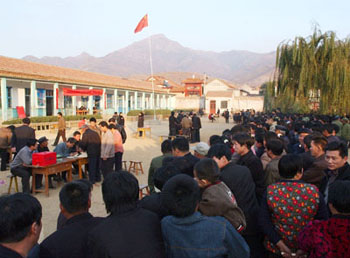| Tools: Save | Print | E-mail | Most Read |
| China Questions And Answers |
| Adjust font size: |
Q: It is an undeniable fact that the income of Chinese farmers has not increased in par with urban people. And the income gap between rural and urban areas has been widening. What are the difficulties in increasing farmers' income? What measures will the government adopt to increase farmers' income, so as to narrow the gap? A: Despite the fact that the life of China's farmers has improved markedly during the past two decades, the gap between the urban and rural areas is still expanding. Statistics show that in the seven years from 1997 to 2003, the annual per capita net income increased by four percent in rural areas, while per capita disposable income in urban areas was up eight percent. Per capita income in urban areas is 3.2 times that in rural areas during the period. Farmers' per capita net income reached 2,936 yuan (US$354.59) in 2004. However, allowing for price increases, the real growth rate was only 6.8 percent. Since 2004, however, the central government has taken a series of measures to solve the problem. Second, making more employment opportunities available to farmers by promoting township and private enterprises.
Farmers working in other places came back to their home villages in Zouping County, Shandong Province, to cast their ballots during villagers' committee elections in 2004. The turnout was 98 percent. |
| Tools: Save | Print | E-mail | Most Read |
 |
| Related Stories |
|
Product Directory China Search |
Country Search Hot Buys |
